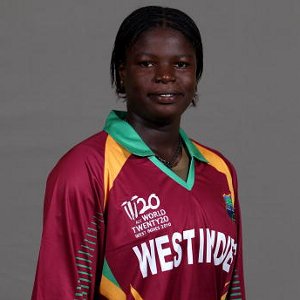
West Indies women’s international cricketer Tremayne Smartt has been found guilty of committing an anti-doping rule violation under Article 2.1 of the ICC Anti-Doping Code (the “ICC Code”) and has been suspended from all cricket and cricket-related activities for a period of five months.
Smartt, 26, provided a urine sample as part of the ICC’s random in-competition testing programme after the conclusion of a Twenty20 International between West Indies and Pakistan, held in Georgetown, Guyana on 11 September 2011.
Her sample was subsequently tested by a World Anti Doping Agency (WADA) accredited laboratory and was found to contain Furosemide. This is classified as a ‘Specified Substance’ under WADA’s Prohibited List and is prohibited both In-Competition and Out-of-Competition.
An independent anti-doping tribunal, comprising Mr Tim Kerr, QC, (acting as chairman), Dr Anik Sax and Prof. Peter Sever heard the case today in London and made its determination after considering detailed written and oral legal submissions as well as live witness evidence, including from Smartt herself.
The tribunal accepted that Smartt had ingested the ‘Specified Substance’ for therapeutic reasons, specifically to treat swelling in her knee. It also found that Smartt had no intention to enhance her sporting performance or to mask the use of another performance enhancing substance, but that she had failed to satisfy the high levels of personal responsibility implicit upon her as an international cricketer subject to anti-doping rules.
Smartt pleaded guilty to the offence at an early stage in the proceedings and, as mandated under the ICC Code, the tribunal exercised its discretion under the ICC Code to impose upon her a period of ineligibility of five months.
In accordance with the discretion afforded to the tribunal under the ICC Code they have decided that the ineligibility period should commence on 26 October 2011 and expire at midnight on 25 March 2012, therefore leaving her eligible to return to cricket and cricket related activities on 26 March 2012.
In light of the circumstances of this case, the ICC re-iterates its zero-tolerance approach to doping and warns all international players that they remain personally responsible for ensuring that anything they eat, drink or put into their bodies (including any medical treatment they receive) does not give rise to an anti-doping rule violation under the Code.
Reacting after the tribunal announced its decision, Smartt said: “It was never my intention to breach the anti-doping regulations and I did attempt to check the Prohibited List myself. However, I acknowledge that I did not do this effectively and have to accept the consequences. My experience should act as a warning to all cricketers that they should never take any medical products without first consulting a qualified sports medicine practitioner.
“I deeply regret the embarrassment that this episode has brought upon me and the West Indies Cricket Board, and apologise to my team-mates and all fans of West Indies cricket.”
All parties with a right of appeal (including Smartt and the ICC) will be entitled to appeal the decision within 21 days of their receipt of the written decision.
To read the ICC Anti-Doping Code, please click here

